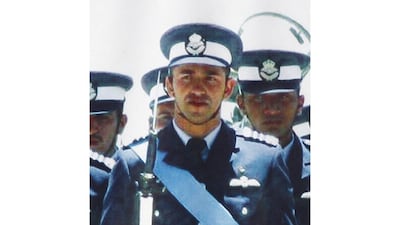Less than three weeks before ISIL captured Jordanian pilot Maaz Al Kassasbeh on December 24, Jordan’s King Abdullah described the fight against the extremist group as “our third world war”. He said that Muslim leaders should take ownership of the fight, which requires a pan-regional strategy to counter extremism.
Two months later, Jordan is now finding itself being pushed to the forefront of this “generational fight”, as the king put it then. Since the terror group burnt Al Kassasbeh to death in a cage, the country’s air force has carried out at least 56 sorties, and been joined by F16s of the UAE. Jordan’s fight against ISIL is no longer someone else’s war.
The greatest mistake that Jordan can make is to define its battle against ISIL purely in the language of vengeance. The pain and anger that define the atmosphere in Jordan today might abate in coming weeks, but the country’s commitment to the destruction of ISIL should become part of a long-term strategy. The rise of ISIL was a result of reactionary and inconsistent policies in the first place – something Jordan must avoid if it is to win this war.
Jordan must heed the king’s own advice during his interview with CBS News in December, when he said that ISIL would not go away without a “holistic” strategy that views the group as part of greater challenges facing the region. ISIL, he said, is one face of many extremist groups in the Middle East.
For Jordan, that strategy should begin not in eastern Syria or northern Iraq, but in southern Syria near its borders. In southern Syria, including in Deraa, the countryside of Damascus and Quneitra, the moderate rebels have been fighting on two fronts: against the forces of Syrian president Bashar Al Assad and against extremist groups such as Jabhat Al Nusra.
Rebels in that region have long been identified as a model for the future Syria, since moderates were dominant and organised unlike in other liberated areas. But the lack of more meaningful support has recently limited the “southern front” from achieving further advances.
By prioritising the southern front, Jordan can achieve two things. First, it will safeguard its border and the Syrian towns and cities adjacent to it by building a moderate force in that region. Second, it will begin to correct the path the international coalition has taken in fighting ISIL, which is to abandon the Syrian conflict and engage in Whack-a-Mole strikes against ISIL. The air campaign against ISIL inside Syria, where Al Kassasbah was murdered, is not even a focus for the international coalition – another issue that should serve as a wake-up call for Jordan.
Countries in the region should know better than allow the US to set the priorities in Syria and Iraq. Six months after the start of the air campaign in the two countries, ISIL still holds sway in much of Syria and Iraq and, despite the information war, there are no signs that it will face internal challenges in the foreseeable future.
As the reactions to the immolation of the Jordanian pilot have shown, people view the campaign against ISIL as illegitimate as long as it spares the equally reprehensible violence of Mr Al Assad. This will remain a fact no matter how savage ISIL continues to be.
Supporting the southern front in Syria would be a good start. The empowerment of moderate forces should be unconditional, especially in Deraa and Quneitra. Everyone stands to benefit from this empowerment. Everyone, that is, except the Assad regime and extremists.
The Assad regime will begin to feel real pressure from rebels surrounding its capital, and extremist forces on the Jordanian, Lebanese and Israeli borders will likewise be squeezed out. A political opening of the Syrian conflict begins there, especially as Jabhat Al Nusra seems to be quietly increasing its grip on northern Syria.
Jordan must recognise that its own security priorities lie in addressing the festering conflict next door. All countries in the region must fight ISIL and like-minded groups, but they have to do so as part of a sober strategy. For Jordan, the Syrian conflict produced the monsters who murdered one of its pilots. But ISIL would still be an imminent threat to Jordan even if it had not become involved in the air campaign.
And as long as the regional and international involvement in the Syrian conflict remains aimless and non-committal, the fight against ISIL will continue to be futile.
Hassan Hassan is an analyst at the Delma Institute
On Twitter: @hxhassan

